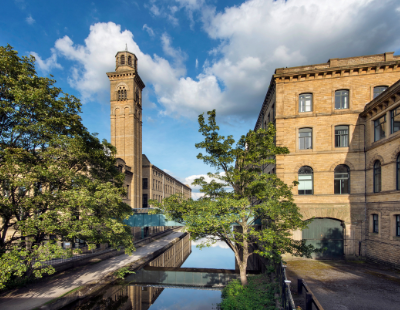During the Housing and Build to Rent Conference, a leading architect based in Nottingham declared that the death of the city centre is inevitable unless developers and investors recognise the shift to Roman culture.
With more people accustomed to working from home five days a week, knock-on effects of emptier business areas and city centres could be a long-term effect. Restaurants, shops, and other services that depend on business from people who work nearby could decline solely because of this change.
By progressing and adapting to the changes that are happening in society and culture, it is possible to prevent and overcome the death of the city centre. For example, transforming unused commercial buildings into homes will encourage more people to live near city centres because these centres will include facilities that coincide with their everyday lives.
Edward Acres, managing director at Acres Architects, claims: “From analysis of the markets, it is clear that we are about to experience an economic boom, akin to that seen in the roaring twenties. There seems to be much emphasis on shops closing down, and a real worry about what lies ahead for our town and city centre spaces, but I feel that we will make a move towards Roman culture, where business will be done on the streets. City centres should become destinations for coffee, culture, museums and enjoyment.”
Why city centres are changing
Edwards urges developers to work collectively. Doing this will help them better identify how society and culture have changed and how city centres can transform to better mirror these changes. Spaces that reflect cultural understanding and enjoyment are likely to replace the city centre.
He added: “Many years ago, twenty-somethings would buy apartments in the city, close to the nightlife, and the suburbs were seen as desirable for rearing your children, settling down and moving on to that next stage of your life. There has been a shift in recent years and Build to Rent trends are seeing more and more developers making use of disused buildings and remodelling them into much-needed housing.”
The shift to online shopping is usually to blame for the decline of the town centre. Yet a Statista survey conducted on 24,072 people in 2019, before the Covid-19 pandemic, revealed more than half of consumers (64%) in the UK favoured high streets over online shopping. Since the pandemic shopping habits have changed and preferences may have too, so these should be considered.
Last week renowned high street shopping chain John Lewis announced plans to build 10,000 rental properties across England. Like many retailers across the country, Chairwoman Dame Sharon White closed 16 of 51 stores since February last year to mend some of the damage the pandemic caused in the retail industry. John Lewis’s decision to join the rental property market exemplifies the current shift that is happening.
Edwards added: "What John Lewis is doing is a smart move, and something already being done in other cities by the likes of Moda Living, Ballymore Group and the Select Property Group, who all understand the importance of adapting to this change and demand.”
"People want to live in apartments once more. Buyers are seeking low maintenance living with concierge services, in house gym spaces and that easy pace of life. The commute is quickly becoming a thing of the past since Covid19, and people want to make things easy for themselves. Put simply, people want more adaptable living spaces.”
"We are helping many property owners to realise the potential in any site, by understanding what the market needs now. Our buildings must stand the test of time, and so as an architectural practice we must predict to some extent what trends will be coming next. Build to Rent is a trend which is here to stay, and we are keen to hear from developers and investors seeking to stay ahead of the game."
There is a need for change to city centres across the country. Greater planning coordination will help pursue new forms of development that thrive. Moving forward if we tailor our city centres in ways that reflect changes in society and culture, such as making them relevant to everyday life with leisure centres, they will be here to stay.

















Join the conversation
Be the first to comment (please use the comment box below)
Please login to comment